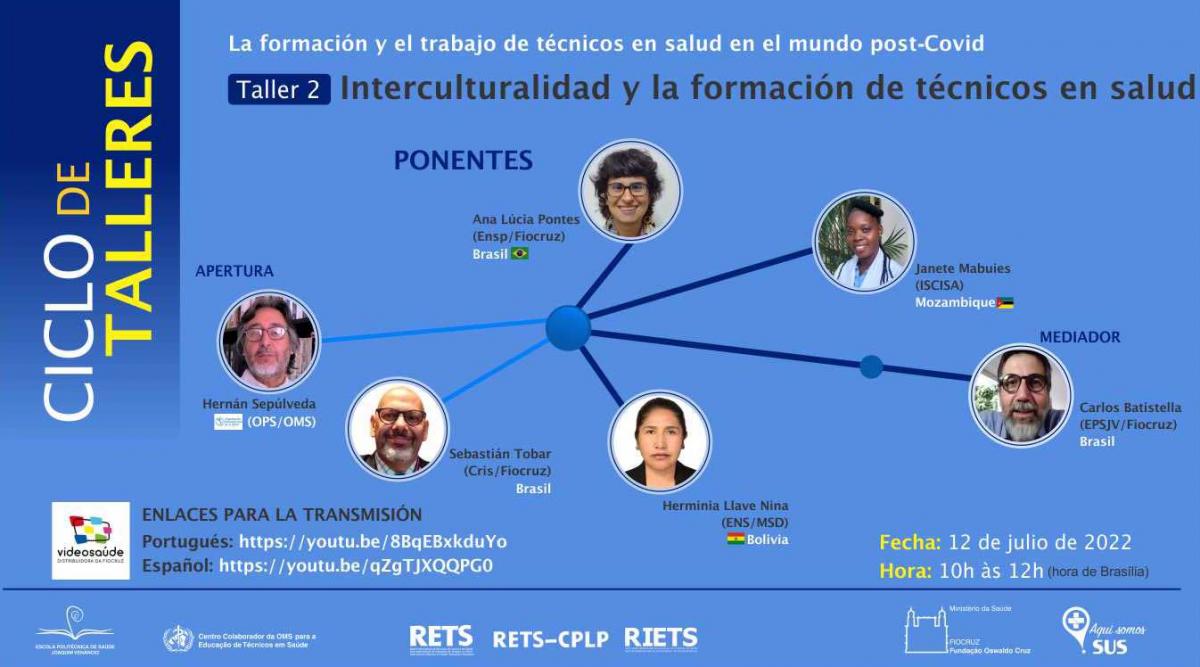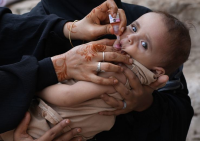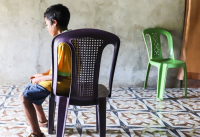'Interculturality and the training of health technicians' is the theme of the second RETS workshop in 2022

The Covid-19 pandemic left a trail of more than 500 million infected, more than six million dead, and generated the greatest economic, health, and social crisis of our time. In national health systems, the pandemic also left major scars and many challenges that need to be overcome as soon as possible.
In this scenario, Primary Health Care has been considered strategic in responding to the expanded health demands and needs of the population. In this workshop we will address the theme of Interculturality and the training of health technicians, trying to explore theoretical and practical aspects of this perspective and its potential to promote universal access, equity assurance, and comprehensive care.
One of the great challenges to national health systems is the failure to recognize the particularities and needs of specific population groups, generally socially and economically vulnerable because of their social or ethnic origin due to colonization processes, structural racism, religious differences, migratory movements, and xenophobia. Even considering that these processes occur differently due to the historical and geopolitical contingencies of each country, it is clear that there is a set of institutional, historical, cultural, and interpersonal practices that promote segregation and marginalization of certain groups, deny their right to self-determination, devalue their culture, and restrict their opportunities in contemporary society.
Remedial actions have been taken by several countries in order to reduce these disparities and ensure citizenship rights for all. In the health field, several intercultural initiatives seek the recognition and integration of epistemologies and traditional medical practices of these populations in care programs and policies.
The consideration of these differences by health information systems is a fundamental step towards the definition of interventions and adequate indicators for monitoring them.
According to the Policy on Ethnicity and Health, approved in September 2017 by PAHO member states, addressing inequities goes beyond ensuring access to health programs and actions: it implies the full participation of indigenous people, blacks, and gypsies in the processes of formulation, implementation, monitoring, and evaluation of social policies. Understanding the cosmovision of these populations is essential to the understanding of the social production of health/disease/care in each context. The articulation between institutionalized and traditional practices in the health services can contribute to the comprehensiveness and resoluteness of the system. For this, it is also necessary to train health personnel - institutional and community - to the dialogue of knowledge, promoting the possibility of timely, culturally relevant, and non-discriminatory health care. Likewise, the theme of interculturality must be included in the design of curricula for technical and professional careers in health care.
Intercultural work in health requires a deep knowledge of the reality in which it intervenes, as well as knowledge of the needs of the population and culturally diverse groups, respecting their participation in the teaching-learning process.
Several issues mobilize our debate
To discuss this very important theme, the following will be present: Hernán Sepúlveda, Advisor of Human Resources for Health SAM-OPS/WHO; Ana Lúcia Pontes, professor-researcher of the National School of Public Health Sérigio Arouca (Ensp/Fiocruz - Brazil); Herminia Llave Nina, coordinator of the technical course of Nursing of the National School of Health of La Paz - Bolivia) and Janete Mabuie, professor-researcher of the Higher Institute of Health Sciences (ISCISA - Mozambique). Sebastián Tobar, advisor of the Center for International Relations in Health (Cris/Fiocruz), and Carlos Eduardo Batistella, coordinator of International Cooperation at EPSJV/Fiocruz, will be responsible for the presentation and mediation.
To what extent has the dimension of interculturality been considered in the health policies of each country? How to avoid that the ethnic and cultural identity of the users represents a barrier to access and opportunity for quality health care in the services? How to reconcile the cultural tensions between the practices of "modern" Western medicine and traditional medicines? How to overcome the perspective of "tolerance" towards the culturally diverse and build an effective intercultural relationship, where the relations of alterity are strengthened, enriched, and mutually transformed? Beyond the language barrier, the disregard of professionals for the beliefs and expectations of their patients regarding the health-disease process represents an obstacle to the establishment of health actions. What competencies are needed by health personnel for intercultural dialogue? Is it possible to go beyond the educational and communicational dimension of these dialogues, involving community participation in planning and solving the problems encountered? How to avoid the risk of interculturality becoming a discourse of assimilation of social groups, in which traditional practices are revalued, but analysis and intervention on the historical determinants of their living conditions are left aside?
About the workshop cycle
The workshop cycle is an EPSJV/Fiocruz initiative, in cooperation with the International Network for Health Technician Education (RETS), the Ibero-American Network for Health Technician Education, and the Network of Technical Health Schools of the Community of Portuguese-speaking Countries (RETS-CPLP).
The purpose of the events, which are supported by the PAHO/WHO Sub-Regional Program for South America and the Center for International Relations in Health of the Oswaldo Cruz Foundation (Cris/Fiocruz), is to create a privileged space for exchange, reflection, learning, and formulation of proposals on the concrete experiences of how different health technician training institutions face their challenges and seek to improve their performance. The workshops are broadcasted via YouTube, in Portuguese and Spanish, by VideoSaúde Distribuidora of Fiocruz.
Service
Date: July 5th, 2022 (Tuesday)
Time: 10am to 12pm (Brasília)
Transmission in Portuguese: https://youtu.be/8BqEBxkduYo
Transmission in Spanish: https://youtu.be/ta-UIPMTUHg



